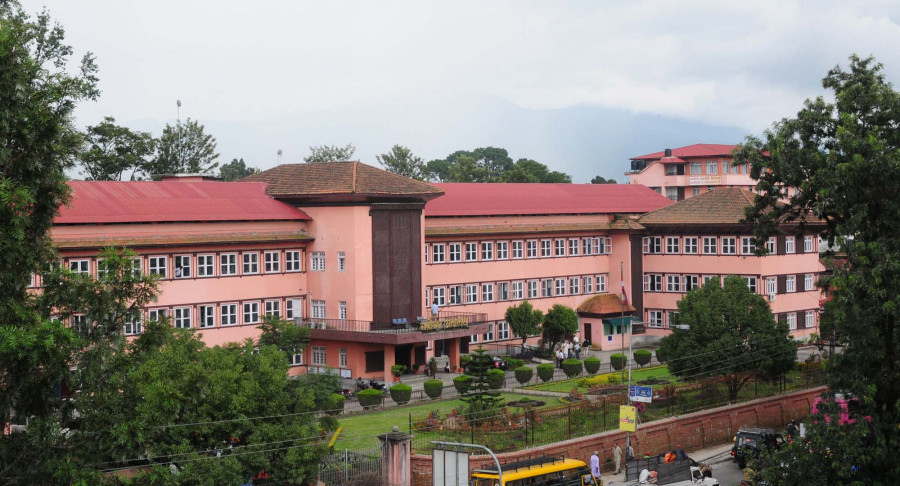Editorial
The ultimate arbiter
The Nepali people are waiting with bated breath for the judiciary’s response.
After the constitutional crisis Prime Minister KP Sharma Oli has invited with his unconstitutional sudden move of dissolving the House of Representatives, all eyes are on the judiciary. The Office of the President that approved the Oli Cabinet’s recommendation for the dissolution of Parliament has cited Articles 76 (1), 76 (7) and 85 of the constitution. None of the articles, however, allows Oli, as a majority prime minister, to dissolve the House using it.
In its long-winded release, the Office of the President has said it endorsed the government’s recommendation for the House dissolution and fresh elections as per the said provisions, fundamental spirit and principles of the parliamentary system and 'our own practices and those followed by other countries that follow the parliamentary system'. It has by now become apparent that the executive and the head of state have played complicit roles in trampling upon the same constitution that they were elected to protect.
Now that Oli’s move is certain to be challenged at the court of law, the Nepali people, on whom a two-thirds majority government led by Oli has committed betrayal, are waiting with bated breath for the judiciary’s response.
Despite having a chequered history, Nepal’s judiciary has often come to the rescue, especially when the country has faced constitutional or political crises. Political parties may interpret the judgments their way, but the judiciary’s role in protecting the constitution and system on several occasions in the past deserves praise. The judiciary has also come under attack from the executive or political parties, with the one in recent memory being an impeachment motion against the then chief justice Sushila Karki. That said, Nepal’s judiciary also faces charges of losing independence and being complicit with the executive or becoming too aligned with certain political parties.
Be that as it may, the Supreme Court still comes to the mind for the outstanding verdicts it has passed in the past whenever democracy came under attack. Even during the constitutional monarchy, people’s faith always lay in the country’s judiciary as they believed in its independence and impartiality.
After stress-testing the system time and again, Oli has now ultimately torn apart the constitution, trampled upon the fundamental principles of democracy and betrayed the Nepali people and undermined their votes.
No matter how Prime Minister Oli and President Bidya Devi Bhandari try to interpret the constitutional provisions to justify the move of dissolving the House, it’s the Supreme Court that is the ultimate arbiter of the Constitution of Nepal. The system Nepal has adopted has distinctly divided the three branches of government—the executive, the legislature and the judiciary. The basic concept behind that is ensuring checks and balances. With Oli as the executive head crushing the legislature with just one stroke of the pen, it’s now up to the judiciary to save democracy from backsliding.
Will the court rise to the occasion? Will the judges show moral integrity to stand up to the executive’s blatant attack on the constitution and democratic principles? It’s up to the judges to rap on the executive’s knuckles and save the country from falling into the abyss of uncertainty. The court has a big moral challenge before it.




 14.24°C Kathmandu
14.24°C Kathmandu














